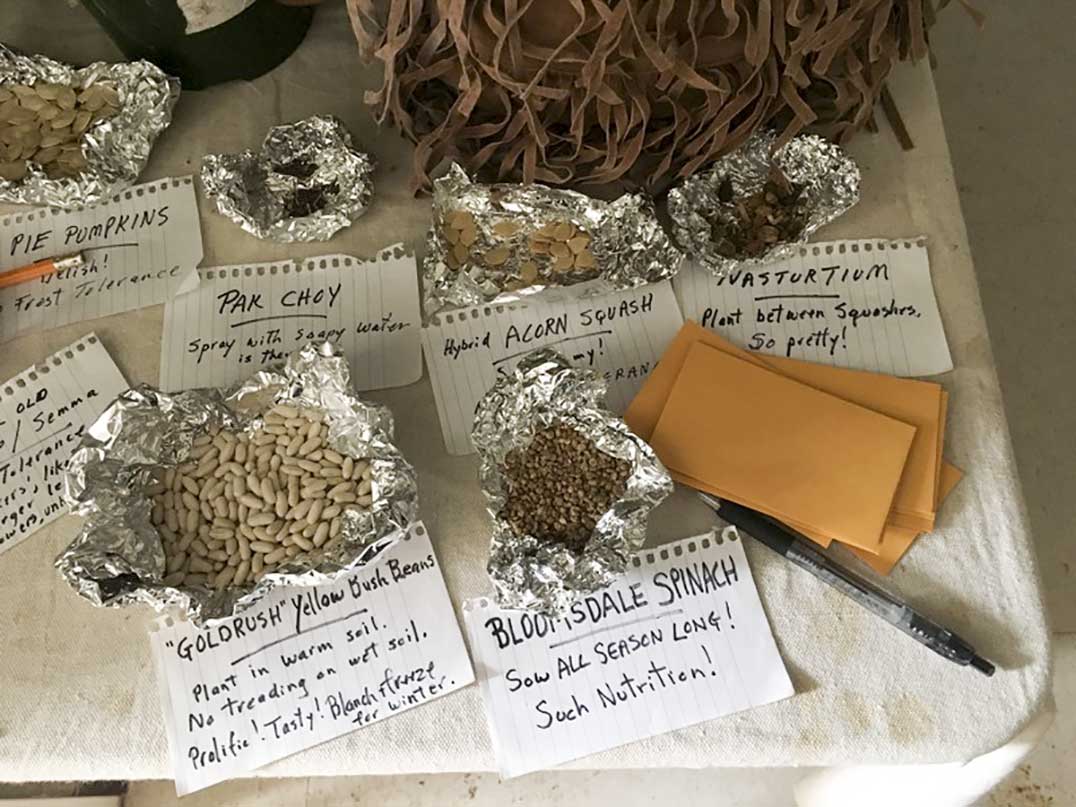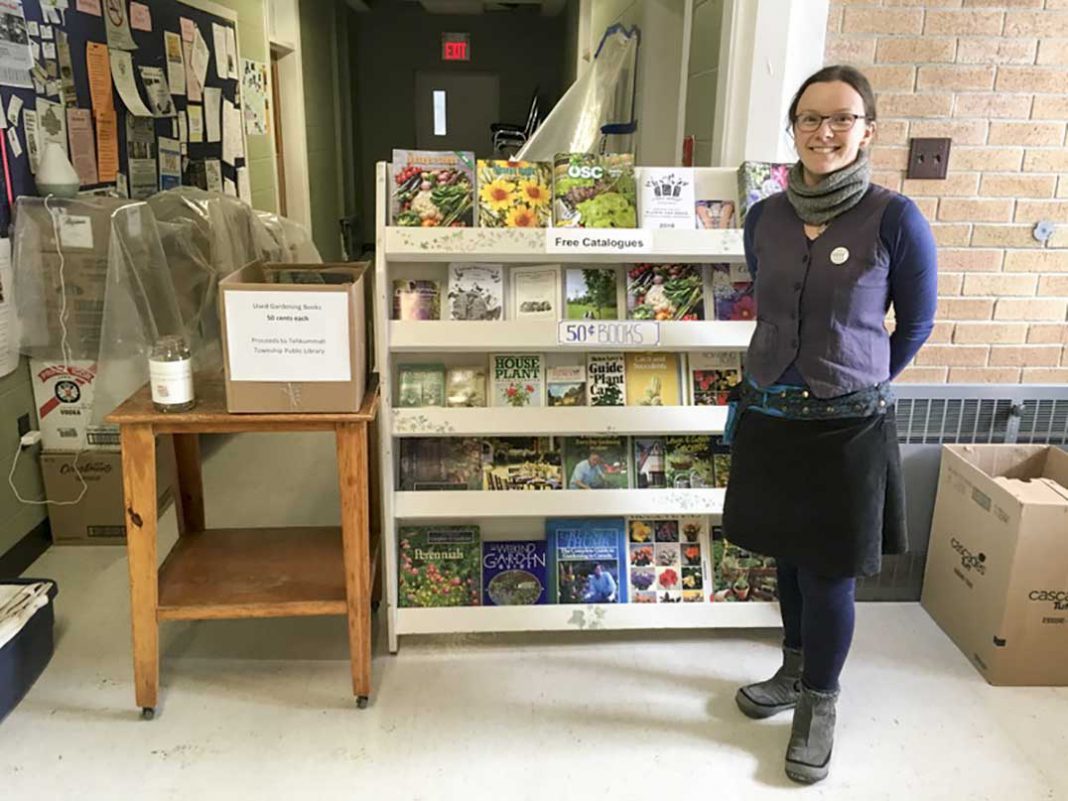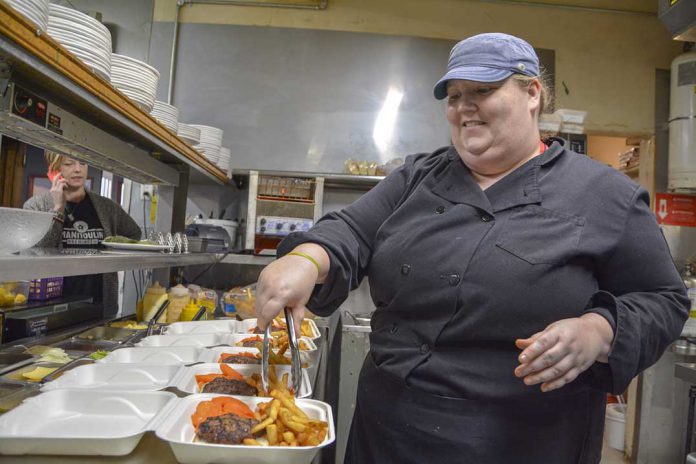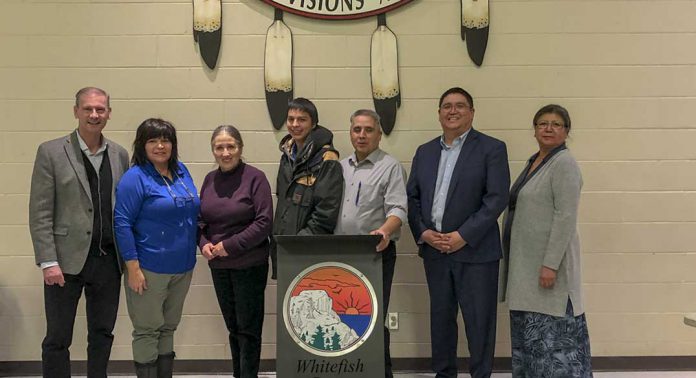TEHKUMMAH—The Tehkummah Seed Exchange is back for its second year and organizers say there will be even more on offer at this year’s event, taking place on Saturday, February 9 from 11 am to 2:30 pm.
“Participating in seed swaps is a great way to take positive action, learn about local seeds, build community around seed saving and sharing and show support for the seed sharing movement,” says Anastasia Eranosova, organizer of the annual event.
“We have booked a bigger venue this year. We’ll have acoustic live music, a short documentary film screening, tasty organic food and of course, lots of seeds to share,” says Ms. Eranosova.
For those who may be unfamiliar with the concept, a seed exchange is an event designed for both novice and expert gardeners, who can share seeds from their own crops and gather seeds from other local growers. Participants arrive with their own extra seeds or a cash donation and are welcome to grab seeds from their neighbours in exchange for their contributions.
Ms. Eranosova says she was inspired to bring a seed exchange to Tehkummah after attending the annual Debajehmujig Seed Exchange.
“Tehkummah is one of the most fertile lands on the Island. There’s lots of farmers, lots of people who remember how to farm and how to grow a garden. We thought it would be positive to encourage people to start saving and exchanging seeds,” she says.
Because of the constraints on sustainable crop growth, participants are asked to only bring open-pollinated, non-genetically-modified seeds that are not hybrid varieties. This way, the crops will be self-sustaining and produce seeds for future use.

“Participating in seed swaps is a great way to take positive action, learn about local seeds, build community around seed saving and sharing and show support for the seed sharing movement,” says Ms. Eranosova.
There is a certain subversive intent behind events such as this. In modern farming, most cash crops use genetically-modified hybrid seed varieties that can only be purchased from multinational corporations that have a great deal of control over who can use which seeds where, and for what cost.
Historically, farmers would save the seeds from their annual harvests for future planting and sharing purposes. Now, these corporate seeds have specific custom DNA structures and farmers are forbidden from using, saving or redistributing them.
“It’s an act of resistance, or civil disobedience,” Ms. Eranosova says with a smile. “Big corporations must be prevented from owning food crop seeds. Humanity should not allow patents on life.”
Smaller seed companies have been supportive of this event. Heritage Harvest Seed Company in Manitoba and Urban Harvest of Toronto are two of the supporters, in addition to Manitoulin Permaculture and the Northern Ontario Permaculture Research Institute. Seed companies have offered their year-old seeds which they cannot sell but are still viable.
“People are generally excited and grateful because for some, they maybe can’t afford to buy a whole package of a certain type of vegetable. By coming to the seed exchange, they’re much cheaper or they can even barter for seeds. I think it makes gardening and growing foods more accessible,” Ms. Eranosova says.
There will be tables set up at the Tehkummah Triangle Senior Citizens’ Club for people to display their seeds. Varieties of plants include food crops, flowers, tubers, and the occasional tree or mushroom. Those taking part are asked to only take what they need on an honour system, but rarer varieties may be watched a bit more closely.
The event took place at the municipal building last year and saw over 60 people attend. They shared stories of their gardening successes and failures. Because of the popularity, Ms. Eranosova says she sought a bigger venue and more offerings for this year.
Vendors will be on-hand showcasing their finest wares, there will be a screening of a short film called ‘Saving Seeds at Home with Vandana Shiva’ that features the named Indian political environmentalist, Matt Maranger of Kagawong will be performing his unique style of ‘folkabilly jazz’ and a healthy lunch will be available for sale alongside coffee and tea. There will even be door prizes for the first 15 people who show up at the event.
A seed exchange is meant to be enjoyed by people with all sorts of growing facilities.
“Whether you are a hardy community gardener or grow veggies and flowers at home, you are bound to have a few extra seed packages lying around. Tehkummah Seed Exchange is your chance to trade some of those seeds, spuds, crowns or cuttings for ones you fancy a bit more,” says Ms. Eranosova.
“It doesn’t have to be a full farm. It could just be a small raised bed garden or even a pot on your porch or balcony. Growing your own food gives you a much bigger sense of accomplishment versus buying things in a store,” Ms. Eranosova says. “The more people that share seeds, the better it is.”
There was a substantial amount of seeds left over after last year’s event. Ms. Eranosova partnered with the Tehkummah Public Library to offer a seed area and donation box among its book collection for a month following the exchange. She says she might try to arrange the same thing for this year if there is demand.
There are opportunities to learn within an event of this kind, too.
“I’ve realized how important it is to save seeds and increase biodiversity. I understand how it still is popular among people to buy hybrid seeds because it’s maybe easier for them, but they have to keep buying every year because the hybrid is only viable for one year. The offspring of those seeds are not strong,” Ms. Eranosova says.
“Seventy years ago, we had 150 varieties of tomatoes. With hybrids being so popular, old varieties were not carried forward. They were forgotten, maybe a few still grow but they are not available to the public. It’s important to revive that tradition, to save seeds and make some strong varieties for certain climates or soil conditions available to people so they may use less insecticides or have less problems with droughts,” she adds.
The social and community-building aspects of a seed exchange are important benefits these events provide.
“This is an opportunity to save some money and try something new. We invite everyone to come share and exchange seeds, learn something new and meet fellow gardeners,” Ms. Eranosova says, adding that these events are only successful through good intentions and co-operation.
“What warms my heart is to see how people come together and share without any intention of monetary gains, just saying, ‘I have excess, I’m going to give it away’.”





